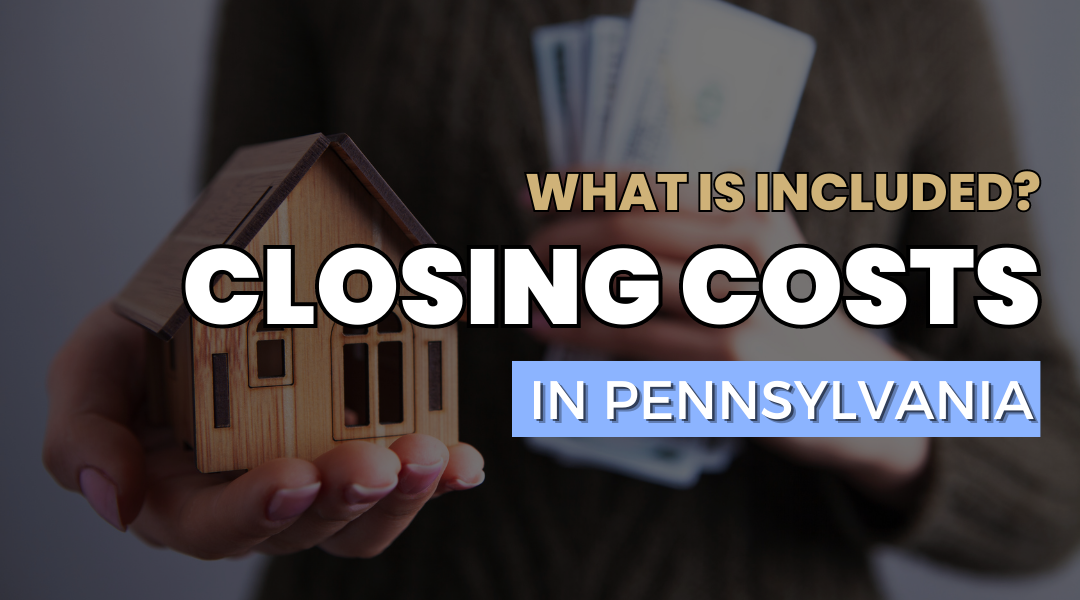Your Guide to Pennsylvania Closing Costs
.
When purchasing a home in Pennsylvania, it’s important to consider the various costs associated with the transaction, including closing costs. As a mortgage broker with years of experience in the industry, I have seen many homebuyers who were surprised by the number of closing costs they had to pay. In this article, I will provide a comprehensive guide to understanding and estimating Pennsylvania closing costs.
Understanding Pennsylvania Closing Costs
Closing costs are the fees and charges that homebuyers must pay at the time of closing on their home purchase. These costs are typically paid by the buyer, although some costs may be paid by the seller or split between the two parties. Closing costs can include a variety of fees, such as appraisal fees, title insurance fees, attorney fees, mortgage insurance premiums, and more.
Closing costs can vary depending on the location of the property, the type of loan being used, and the price of the home. In Pennsylvania, the average closing costs can range from 2% to 5% of the total loan amount, or approximately $6,000 to $12,000 for a $300,000 home.
Types of Closing Costs in Pennsylvania
There are several types of closing costs that homebuyers in Pennsylvania should be aware of. These include:
- Appraisal Fee – An appraisal fee is paid to a professional appraiser who will determine the value of the property being purchased.
- Credit Report Fee – A credit report fee is paid to obtain a copy of the buyer’s credit report, which is used by lenders to determine whether to approve the loan.
- Origination Fee – An origination fee is charged by the lender for processing the loan application.
- Title Search and Title Insurance – A title search fee is charged to ensure that the seller has the legal right to sell the property, while title insurance protects the buyer against any legal disputes over ownership of the property.
- Attorney Fees – In Pennsylvania, it is common for both the buyer and the seller to have their own attorney present at the closing to review and sign legal documents.
- Recording Fees – Recording fees are charged by the county or municipality to record the deed and mortgage documents in the public record.
- Mortgage Insurance Premium – Mortgage insurance is required for homebuyers who are putting less than 20% down on their home purchase.
- Homeowners Insurance – Homeowners insurance is required to protect the property and the buyer’s investment in the home.
- Prepaid Items – Prepaid items include expenses such as property taxes and homeowner’s insurance, which must be paid in advance at closing.
How to Estimate Pennsylvania Closing Costs
Closing costs can be a significant expense for homebuyers in Pennsylvania. Fortunately, there are steps that buyers can take to estimate and reduce these costs.
The first step in estimating closing costs is to consult with your mortgage lender or broker. They can provide a detailed estimate of the closing costs based on the specific loan program that you are using. This estimate will take into account various fees associated with the loan, such as origination fees, appraisal fees, and credit report fees.
It’s important to note that closing costs can vary depending on the type of loan program you use, the lender you choose, and the location of the property. For example, the closing costs on a government-backed loan, such as an FHA or VA loan, may be different from those on a conventional loan.
In addition to consulting with your lender, you can also use a closing cost calculator to get a rough estimate of the costs. These calculators are available online and take into account the purchase price of the home, the loan amount, and the location of the property.
Keep in mind that while these calculators can provide a general estimate of the costs, they may not be completely accurate. To get a more accurate estimate, you’ll need to consult with your lender and review the loan estimate document that they provide.
Strategies for Reducing Pennsylvania Closing Costs
One way to reduce closing costs is to negotiate with the seller. In some cases, the seller may be willing to pay for certain closing costs, such as the appraisal fee or the title search fee. This can help reduce the amount of money that the buyer needs to bring to closing.
Another way to reduce closing costs is to shop around for lenders. Different lenders may offer different fees and rates, so it’s important to compare your options before choosing a lender. Be sure to ask for a detailed breakdown of the fees associated with the loan so that you can compare apples to apples.
Finally, buyers can also consider using a no-closing-cost mortgage. With this type of loan, the lender agrees to pay for certain closing costs in exchange for a higher interest rate on the loan. While this may not be the best option for everyone, it can be a good choice for buyers who want to reduce their upfront costs.
Finally, buyers can also consider using a no-closing-cost mortgage. With this type of loan, the lender agrees to pay for certain closing costs in exchange for a higher interest rate on the loan. While this may not be the best option for everyone, it can be a good choice for buyers who want to reduce their upfront costs.
Conclusion: Navigating Pennsylvania Closing Costs
In summary, estimating and reducing closing costs is an important part of the homebuying process in Pennsylvania. By consulting with your lender, using a closing cost calculator, negotiating with the seller, shopping around for lenders, and considering a no-closing-cost mortgage, you can reduce the amount of money that you need to bring to closing and make the homebuying process more affordable. As a mortgage broker expert, I am here to help you navigate this process and find the best loan program for your needs.
In summary, estimating and reducing closing costs is an important part of the homebuying process in Pennsylvania. By consulting with your lender, using a closing cost calculator, negotiating with the seller, shopping around for lenders, and considering a no-closing-cost mortgage, you can reduce the amount of money that you need to bring to closing and make the homebuying process more affordable. As a mortgage broker expert, I am here to help you navigate this process and find the best loan program for your needs.
Mortgage Consultation Today!
Categories
- Credit (4)
- FHA Loans (3)
- Finances (3)
- First Time Home Buyers (6)
- Grab Bag (7)
- Home Technology (1)
- Homebuying Tips (17)
- Inspiration (1)
- Insurance (3)
- Interest Rates (3)
- Loan Process (1)
- Mortgage Financing (14)
- Motivation (1)
- News (1)
- Press Release (8)
- Renovation (2)
- Self Employed (1)
- Tips & tricks (1)
- Uncategorized (134)
- USDA Loans (1)
- VA Loans (2)




